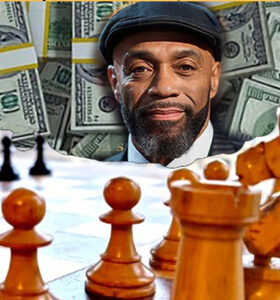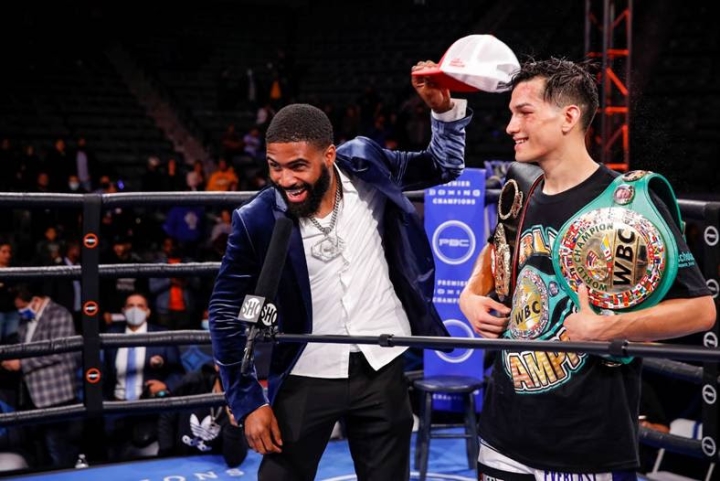
Article By: John Green
Al Haymon is one of the most influential and elusive figures in boxing. His career trajectory is fascinating, as he began his rise in the entertainment industry before transitioning to the world of sports, particularly boxing.
Haymon was born in Cleveland, Ohio, into a middle-class family. He has always been incredibly private about his childhood, so there aren’t many public details about it. However, we do know that his brother, Bobby Haymon, was a professional boxer, which may have influenced his later career in boxing. Al Haymon attended Harvard University, where he completed his MBA. His education laid the groundwork for his keen business acumen and strategic thinking.
Al Haymon initially made a name for himself in the music industry. In the late 1970s and through the 1980s, he promoted concerts and managed top artists like Whitney Houston, Janet Jackson, and MC Hammer. One of his most notable ventures was creating and managing the Budweiser Superfest, a highly successful annual concert series that ran from 1979 to 1999. His success in music promotion gave him a reputation for innovation and an understanding of entertainment business strategies, which he later applied to boxing.
Haymon shifted to boxing in the early 2000s, first managing Vernon Forrest, and his career took off from there. He became known for his ability to secure lucrative deals and prioritize his fighters’ interests, focusing on career management and financial planning. His relationship with Floyd Mayweather Jr. catapulted him to new heights of influence in boxing, particularly through the record-breaking deals he negotiated, such as Mayweather’s $200 million deal with Showtime.
In 2015, Haymon launched Premier Boxing Champions (PBC), aiming to bring boxing back to mainstream television. PBC debuted on NBC and later secured deals with other networks like ABC, CBS, and Fox. His goal was to make high-quality boxing matches accessible to a wider audience without relying solely on pay-per-view. However, ratings for PBC broadcasts on these networks were inconsistent, which made it difficult to maintain the business model over time. Something Dazn Would learn many years down the line.
Both HBO (2018) and Showtime (2023) have exited the boxing world after decades of involvement, and Haymon’s impact during their final years has been significant. Some argue that HBO’s departure was influenced by the increasing dominance of PBC and Haymon’s deals, which made it harder for HBO to secure major fights. Showtime, which had a long-standing relationship with PBC, saw some success but eventually struggled to maintain profitability in the boxing arena.
Showtime’s exit in 2023 marked the end of an era, with some suggesting that the network’s inability to generate consistently strong ratings for boxing events was a factor. Haymon’s PBC strategy of securing time-buys on major networks was innovative but expensive, leading some investors to pull back over time.
In 2024, Haymon moved PBC to a new home with Amazon Prime, marking another major shift in his approach to broadcasting. This partnership is seen as a potential game-changer for the sport, offering an opportunity for PBC to reach a global audience through a popular streaming platform. The new deal with Amazon Prime allows for a mix of pay-per-view events and regular streaming, potentially lowering costs for viewers and expanding access.
With this new platform, Haymon is once again at the forefront of boxing’s digital evolution, and the success of this partnership will likely determine the future of both PBC and his role in the sport. Fans and analysts are watching closely to see how this shift to streaming platforms affects the boxing landscape, particularly in terms of viewership and fight accessibility.
Al Haymon’s mark on boxing is undeniable, from his strategic management of fighters to his pioneering broadcast deals. His ability to shape the future of boxing, first with PBC on major networks and now with Amazon Prime, continues to influence the sport. However, the challenge remains in how he navigates the complex world of streaming and viewership in an era where traditional TV is losing ground to digital platforms and digital platforms are vulnerable to theft. Either way Al Haymon has faced adversity before and he seems to be quite comfortable in the combat zone. Lesson of the day. Don’t ever count him out.


